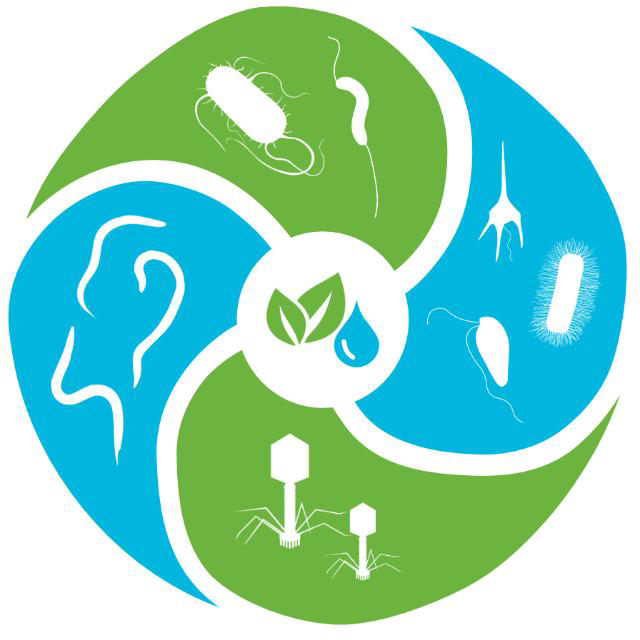Microbial Interaction Ecology
Our group and the UFZ welcome applications, students and collaborators regardless of nationality, religion, gender identification, sexual orientation, age, or disability status. We believe in diverse perspectives and experiences, and thus want to create an environment that helps to find a wide range of potential solutions for scientific questions, but also for society in general.

Research Interests
Natural and artificial ecosystems consist of several trophic levels that interact with each other. While bacteria are the main players for many functions, viruses and other micro-predators (protists, bacterial predators) control those communities and thus their functions on multiple levels. Infection by viruses, for instance, not only affects community composition and the genetic landscape, but also biogeochemical turnover and nutrient recycling (e.g., viral shunt).
Our aim is to understand the diversity of viruses and microbes, their genomic composition, functional potential, interactions and assembly rules, and the resulting consequences for ecosystems by using theory, computational approaches and data mining, lab experiments and field surveys.
With this knowledge we aim to provide solutions for the management of (microbial) ecosystems and the application of viruses/predators in natural, engineered or host-associated systems.
A further aim is microbial data stewardship and the promotion of fair data sharing to accelerate the pace of discovery microbiome research.
Current Projects and Cooperations
- Viral shunt, viromes, and virus-host / virus-fungi interactions in subsurface systems and groundwater (with DFG-CRC AquaDiva partners, AquaDiva, UFZ group Bioavailability, Lukas Wick)
- Virus diversity / viromes in soils along land-use gradients (with Michael Schloter, TU Munich, Helmholtz Zentrum Munich; Christian Griebler, Universität Wien; Biodiversity Exploratories SPP 1374)
- Microbiomes in soils under different land use and climate scenarios, and in the rhizosphere of plants and trees Biodiversity Exploratories SPP 1374), Phytoakmeter GCEF
- Assessment of pesticide impact on a soil food-web context (with Dimitris Karpouzas, University of Thessaly, Greece, EU-ITN ARISTO ARISTO)
- Microbial Bio-Pesticides und risk assessment of new low-risk pesticides, EU RATION
Scientists
Dr. Stephanie Jurburg: Microbial ecology, community assembly, data stewardship
Dr. Nawras Ghanem: Virus-bacteria interactions, viral shuntDr. João Pedro Leonor Fernandes Saraiva: Bacterial (meta)genomes, genomes of protists, biopesticides
Felipe Borim Corrêa: Viral metagenomes
PhD Students
Marta Eugenia Perez Villanueva (currently in France common PhD student with Cédric Malandain, HYDREKA/Lyon) : Ecotoxicity of pesticides on microbial communities and functions in a food-web context ARISTO Project)
Maria Kostakou: Spatial assembly in soil microbial communities across scales, land cover, and land use Biodiversitätsexploratories
Lu Wang: Phytoakmeter https://www.uni-marburg.de/en/fb17/phytoakmeter/phytoakmeter-subprojecs/project-area-d
Technicians
Anett Heidtmann
Nicole Steinbach
Lara Zenker (apprentice)
Bachelor and Master students
Cristóbal Cantuarias Bottero: Terrestrial viromes as genetic reservoirs for degradation genes
Zhao Heng: Changes of soil microbial communites through virus inoculants
Guest Scientists
Sara Zambon (Unversity of Tuscia, Italy): Viral shunt in soils
Please visit the webpages of the group leader Antonis Chatzinotas or the group members for information on research projects and cooperations.
Publications
To see our publications, please visit our personal web pages.
Find open Postdoc, PhD, Master-/Bachelor-positions and Internships of our group at
Jobs and Education
